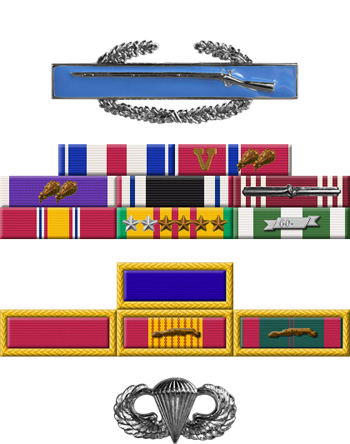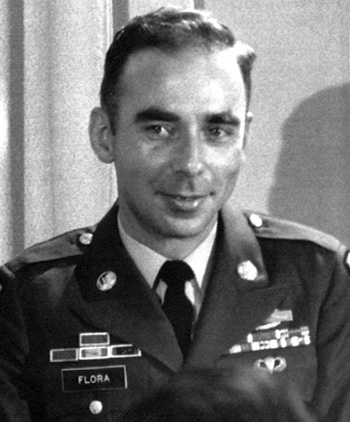
|
Carroll Edward "Ed" Flora, Jr. |
 |
|||
| Rank, Service | ||||
1st Sergeant E-8, U.S. Army |
||||
| Veteran of: | ||||
|
||||
| Tribute: | ||||
Ed Flora was born on August 20, 1941, in Brunswick, Maryland. He enlisted in the U.S. Army on June 11, 1959, and was trained as an Infantry Scout, serving until his honorable discharge in May 1962. Sgt Flora reenlisted on July 24, 1964, and after completing airborne school he was assigned as an Infantry Scout with the 2nd Battalion of the 509th Infantry Regiment in West Germany from October 1964 to June 1966. His next assignment was as a Squad Leader with the 3rd Battalion of the 7th Infantry Regiment, 199th Infantry Brigade, at Fort Benning, Georgia, from June to December 1966, when he deployed with the unit to South Vietnam. Sgt Flora transferred to the 5th Special Forces Group in South Vietnam in April 1967, and was captured and taken as a Prisoner of War on July 21, 1967. After spending 2,055 days in captivity, he was released during Operation Homecoming on March 5, 1973. He was briefly hospitalized to recover from his injuries, and then served as an MP Supervisor with the 111th Military Police Company at Fort McClellan, Alabama, from August 1973 to April 1974, followed by attendance at the U.S. Army MP School at Fort Gordon, Georgia, from April to June 1974. He was stationed at Fort McClellan from June 1974 to February 1975, and then served as 1st Sergeant of the 236th MP Detachment in Washington, D.C., from February 1975 until he was medically retired from the Army on June 13, 1977. After leaving the Army, he worked in the banking industry. Ed Flora died on September 15, 2013, and was buried at Arlington National Cemetery. He and his wife JoAnn had two children together; Teresa LaFratte and Dwayne Flora. |
||||
|
||||

